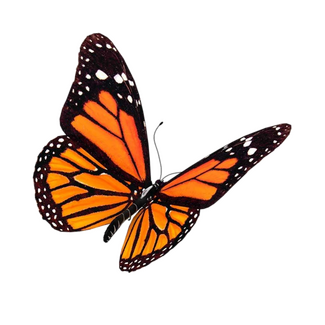University of Illinois Extension's Master Naturalist Program is designed for adults of any age who want to learn about and positively impact their local environment. The goal of the program is to engage participants with the natural world and encourage them to seek lifelong learning opportunities to further their development as a naturalist.
Master Naturalist Program participants have the opportunity to:
- Learn about Illinois' natural history, ecosystems, plant and animal communities, and environmental issues
- Enhance your love of nature through hands-on training and community-based service,
- Practice lifelong learning and sharing
- Interact and build relationships with new acquaintances with similar interests
- Give something back to nature and your local community
- Learn from and work side-by-side with experts
Our local training runs from August through mid-October, Tuesday evenings from 5:30-8:30 pm in Mattoon. Two Saturday field sessions are also held mid to late September form 9:00 am -1:00 pm. Locations are determined before training begins. Past locations include Warbler Ridge Conservation area near Charleston and Lake Shelbyville.
Become a Master Naturalist
Why become a Master Naturalist?
Nature is everywhere, in your neighborhood, in your backyard, and in your house. Becoming more educated about the natural world increases your awareness and appreciation of it, enriching your everyday life. In the tradition of John Muir, John James Audobon, and even Teddy Roosevelt, as a naturalist, you can contribute to conservation and a greener world. And you can play an important role in sharing that world with others in your community.
When is the next training?
Our local training is offered jointly with the Extension office in Coles, Cumberland, Douglas, Moultrie, and Shelby counties, expending opportunities for collaboration and regional learning. Training runs from August through mid-October, Tuesday evenings from 5:30 - 8:30 pm. Two Saturday field sessions are also held mid to late September from 9:00 am - 1:00 pm. Training locations are determined prior to the course start and have included sites such as Douglas-Hart Nature Center, Warbler Ridge Conservation Area near Charleston, and Lake Shelbyville.
What does the training involve?
Training will take place once a week August through October, with some additional Saturday field trips. Training sessions will include hands-on activities, guest lectures from experts across the state, and active discussions on topics and readings.
What are the expectations of a volunteer?
To become a Certified Master Naturalist, you must complete 60 hours of field and classroom learning which is offered each spring. During and after trianing, you may begin working on the 60 hours of volunteer service required to complete your Master Naturalist internship. You have 24 months to complete your internship and become a certified Master Naturalist. To remain certified, an additional 30 hours of volunteer service and 10 hours of continuing education should be performed and reported annually. Read more in the Master Naturalist Handbook.
What is the program fee?
The program fee is $250. Some partial fee waivers are available if cost is a concern.
How do I join?
Fill out the interest form to meet with the Master Naturalist Program Coordinator. The MN program coordinator will meet with you to discuss details of the program, and should it be a good fit, they will enroll you in teh Master Naturalist Training Program.
How do I become certified?
After completing the training, participants will be Master Naturalist interns. To become fully certified, you must volunter 60 hours through pre-approved volunteer projects. Volunteer projects can include invasive species pulls, herbarium specimen preparation, leading a nature hike, serving as a docent at a state partk, stewardship work like trail maintenance and pollinator garden maintenance, assisting with educational programs for youth or adults, and much more.
How do I remain active in the program?
Following the completion of an internship, participants are certified Master Naturalists. To remain active, volunteers must complete and log 30 hours of volunteer time and 10 hours of continuing education each year and sign an annual agreement. Continuing education is continued learning from research-based sources on topics related to the natural world. Examples include webinars offered by University of Illinois Extension, talks from local nature groups, and more.

Policies and Guidelines
After reviewing the Master Naturalist handbook, volunteers should complete the Volunteer Agreement and Code of Conduct each year.
Volunteer
For More Information:
